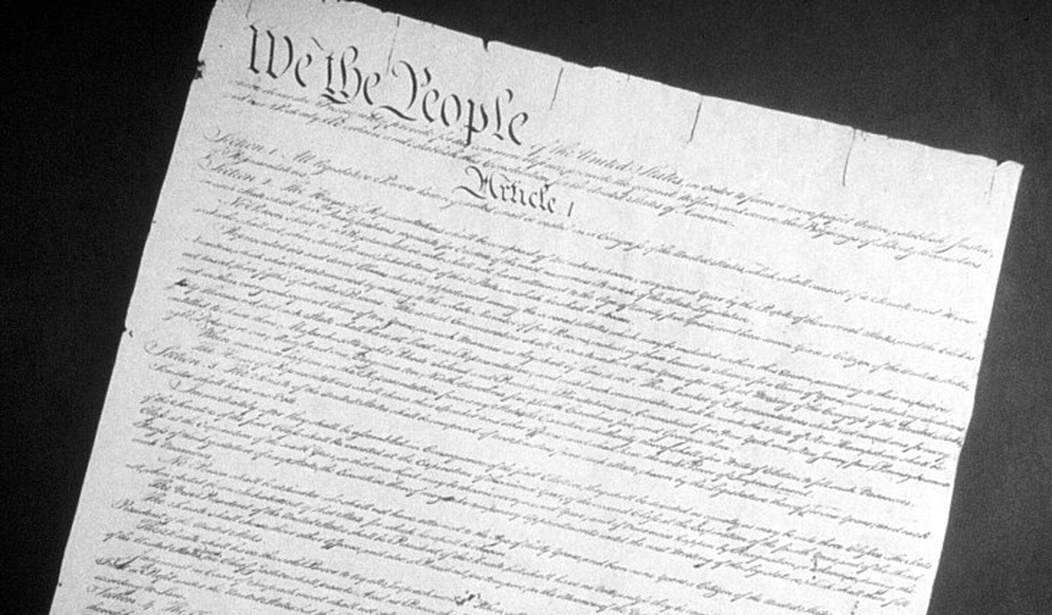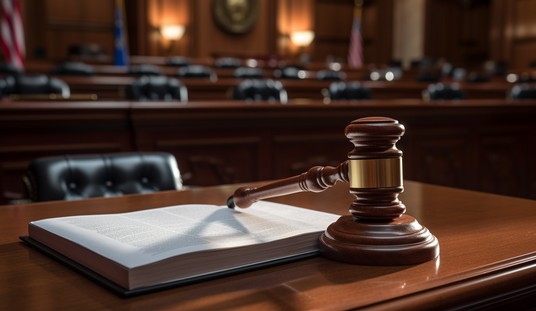I've proposed this idea a time or two, usually as part of a list of constitutional amendments that, were a genie to pop out of a bottle and offer me three wishes, I'd like to see implemented or removed. Well, no genie is forthcoming, but I still have some druthers. The Constitution is the finest governing document yet created; the republic it created may not be the best of all imaginable systems of government, but it's certainly the best possible one.
But if that genie would just offer me one wish and only one, what I'd wish for might well be a constitutional amendment to guarantee, or at least go a long way towards guaranteeing, a constitutional review of any federal law or regulation before, not after, they take effect.
This 28th Amendment would establish a 4th branch of the federal government: The Constitutional Tribunal. A tribunal is defined as a "court or forum of justice" or "something that decides or determines," so the term seems appropriate. This 28th Amendment would read:
A fourth branch of government is established, the Constitutional Tribunal, consisting of three Tribunes from each State: One elected by the eligible voters of the State, one appointed by the State legislature, and one selected at random from the rolls of eligible voters. The purpose of the Tribunes are to determine the Constitutionality of all new laws and regulations. Each Tribune will serve one two-year term and only one.
All new laws and regulations from any source are considered to be potentially unconstitutional and shall not take effect until approved by a 2/3 vote of the Constitutional Tribunal. In the event of a law or regulation being determined to be prohibited by the Constitution, any elected officials who sponsored or co-sponsored the legislation, or any appointed or hired officials who authored the regulation, shall be immediately removed from office and henceforth prohibited from any elected, appointed, or hired office at the Federal level.
That would certainly change things up some, wouldn't it? The existing presumption is that any new law or regulation is constitutional until it is challenged, and after a lengthy court battle, often ending up in the Supreme Court, the constitutionality is determined after the fact. With the 28th, that is flipped; no law or regulation may take effect until after passing constitutional muster.
Read More: Is There a Human Right to Commerce?
Legal Eagles Mock Biden Into Next Week for His Magically Conjuring Up a Constitutional Amendment
Here's the thinking behind this.
In our current system, career politicians freely pass laws that cannot and should not pass Constitutional muster. Unfortunately, someone with “standing” has to challenge those laws to get them tossed out, and the people who passed those laws face no consequences. So let’s have a new branch of government that does nothing else but determine the constitutionality of new laws and regulations, and let’s have the selection of the members be split among various groups with differing priorities.
Look again at the source of the tribunes.
One elected by the voters; this is the democratic (note the small d) part of this, where the people get to watch a campaign and vote for their choice. This is akin to the original purpose of the House of Representatives: a house, or in this case, one-third of the tribunal, elected by a popular vote of the people.
One appointed by state legislatures; this is the republican (note the small r) part of the tribunal, echoing the original purpose of the United States Senate. This third of the tribunal would represent the interests of their state legislatures, their state governments.
One selected at random from registered voters. This is the wild card, introducing a little anarchy into the mix. It's something like a two-year stint of jury duty.
Now, there are consequences. Pass a law or write a regulation that you haven’t absolutely determined is in concord with the Constitution? No soup for you! You are out on your butt and proscribed from ever holding such a position of authority again. I did not include, but am willing to consider, including any President who knowingly signs an unconstitutional bill into law.
Here's the catch: I can't have this, no matter how good an idea it might be. Politics is the art of the possible, and no Congress will vote for a proposed amendment that will place them on the hot seat like this one does. But I have my list of wishes for that genie, wishes that also include, for instance, repeal of the 16th and 17th amendments as well as repeal of the 1968 Gun Control Act and the 1934 National Firearms Act. But it's fun to speculate, to postulate, to kick around ideas, no matter how unlikely they are to come to fruition.
Robert Browning, one of my favorite poets, said it best:
Ah, but a man's reach should exceed his grasp, or what's a heaven for?
So, now and then, I reach. The grasping is a little harder. But that doesn't mean the reaching isn't worth the effort.














